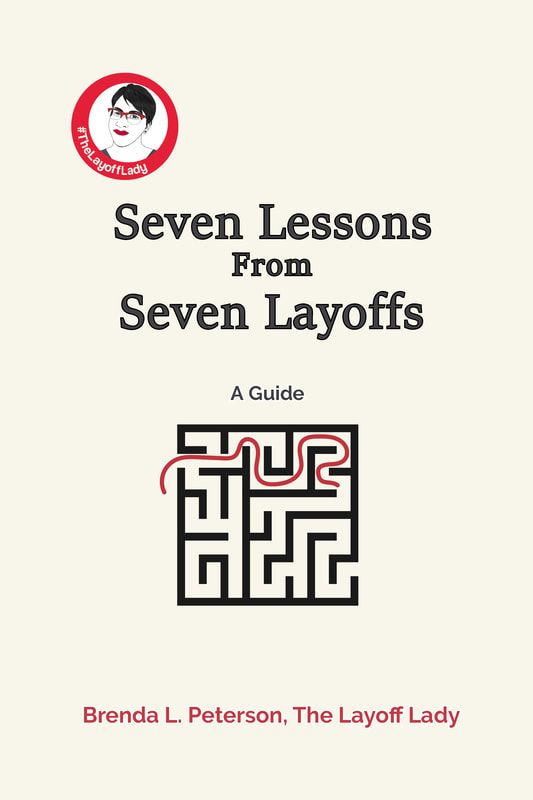|
By Brenda L. Peterson, The Layoff Lady Contract vs Benefits Eligible RolesWhen you're looking for work, it's important to know what salary range you have in mind. As you are initially searching for jobs, a key factor in deciding which jobs to pursue and which to pass on will be what you will earn. If you are looking at contract positions, the salary you will receive is the same as your base salary. Usually, you are paid a set amount for each hour worked with no additional benefits. Consequently, contract positions often have a higher hourly rate knowing that each contractor will have to cover their health insurance and other additional benefits that may be included in other job offers. However, If you are in a benefits-eligible role, you will receive additional value above and beyond your base salary rate. Let's consider what factors may be included in your total compensation package. A DisclaimerWhile I feel comfortable discussing various financial and insurance concepts, I do not currently hold a license or any certification that deems me inherently qualified to give financial advice. The information provided here is intended to be used for educational purposes only. Sometimes, the core challenge is knowing how a system generally works, the terms used to describe what you’re asking about, and where to go for additional help. My goal for this article is to share information to guide you as you navigate the murky waters of job searching. I hope my personal experiences can help you cut a path through the wilderness as you try to figure out your next steps. Feel free to take my recommendations or not. Whatever you do, double-check my facts--and everyone's purported facts, for that matter. This is your life, and you will care more about your financial and healthcare decisions than anyone else. Use this information as a starting point for further research as you ultimately decide what’s right for you. Your Work IncomeFirst, let’s look at a high-level, generalized overview of the money you may receive:
Employer Money For A Specific PurposeIn addition to receiving money in the form of a check or payment payable to you, you may also receive money earmarked for a specific purpose.
Benefits, At Least Partially Employer PaidIn the United States, many people obtain different types of insurance through their employers. Employers often pay administration costs of the plan and help cover some of the costs.
Access To Purchase Additional BenefitsMany employers offer the option for employees to purchase additional benefits. These can include vision insurance, short-term disability, long-term disability, enhanced disability coverage, supplemental life insurance, spouse life insurance, child life insurance, accident insurance, condition-specific health insurance, a legal protection plan, or orthodontic benefits. PerksCompanies may also offer a variety of perks. These can include items you can purchase for a lower cost or resources you can take advantage of that you might otherwise pay for elsewhere. These could include an onsite gym, onsite daycare, free parking, entertainment discounts, stamps, bus passes, use of the company van, cell phone plan discounts, or reduced entry fees for area attractions. Perks can also be anything that makes work easier, more engaging, or more pleasant. These could include shift bidding, flexible work arrangements, remote work, work-from-home days, summer hours, four-day workweeks, onsite flu shots, overtime opportunities, or company events. Time OffEmployers also often pay you for specific hours when you do not work. Here are a few standard categorizations for different types of paid time off: paid time off (PTO), sick time, vacation time, paid holidays, floating holidays, volunteer time, bereavement leave, jury duty pay, or military leave. Instead of having a specific number of paid days available for sick or vacation time, some companies have unlimited time off policies. In most cases, instead of earning and then choosing to use paid time off, you work with your manager whenever you want to take off. In general, as long as you are performing your job to an acceptable level, you can take time off. The Salary Question: RevisitedRemember, when a recruiter asks about your salary range, there is a lot more going on than just your base salary. Overall, I suggest giving a salary range instead of a set number to account for possible differences in company-offered benefits. Learn More
0 Comments
By Brenda L. Peterson, The Layoff Lady Onsite, Remote, and Hybrid Work ImplicationsOne challenge during my most recent job search has been the newly added focus on work location. Specifically, the following labels have become more standard on job listings: onsite, hybrid, and remote. While there are, indeed, many remote jobs available, I discovered first-hand that companies and job search sites are not necessarily aligned on what remote, hybrid, and onsite work arrangements mean. Let's dig a little deeper. Remote Job ClarificationsOverall, a "remote" job could mean one or more of the following are true:
Onsite, Remote, and Hybrid Roles in PracticeRegardless of the label, jobs may work differently in practice. Here are a few of the many possible scenarios:
Navigating Job Listings for Remote RolesAs a job seeker, knowing that companies may vary on how they list details in their job descriptions, here are a few strategies for navigating job listings:
Remote Work Implications: Locations and PayThere are also a few other implications of remote work to keep in mind:
Strategies for Remote Work Salary ConversationsGiven these variations on how salaries work for remote roles, be sure to think through your financial requirements and how you will address questions about your desired salary:
Learn More |

Just get laid off?
Click here for info on what to do first. Author7-time layoff survivor Brenda L. Peterson, The Layoff Lady, waxes poetic on layoffs, job transitions, & career resilience. Buy The Book!Were you recently laid off from your job and need a roadmap for what's next? Pick up a copy of my book, Seven Lessons From Seven Layoffs: A Guide!
Categories
All
Archives
July 2024
|






